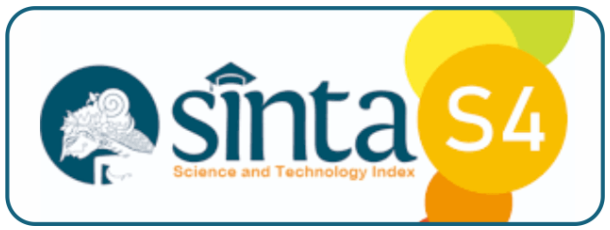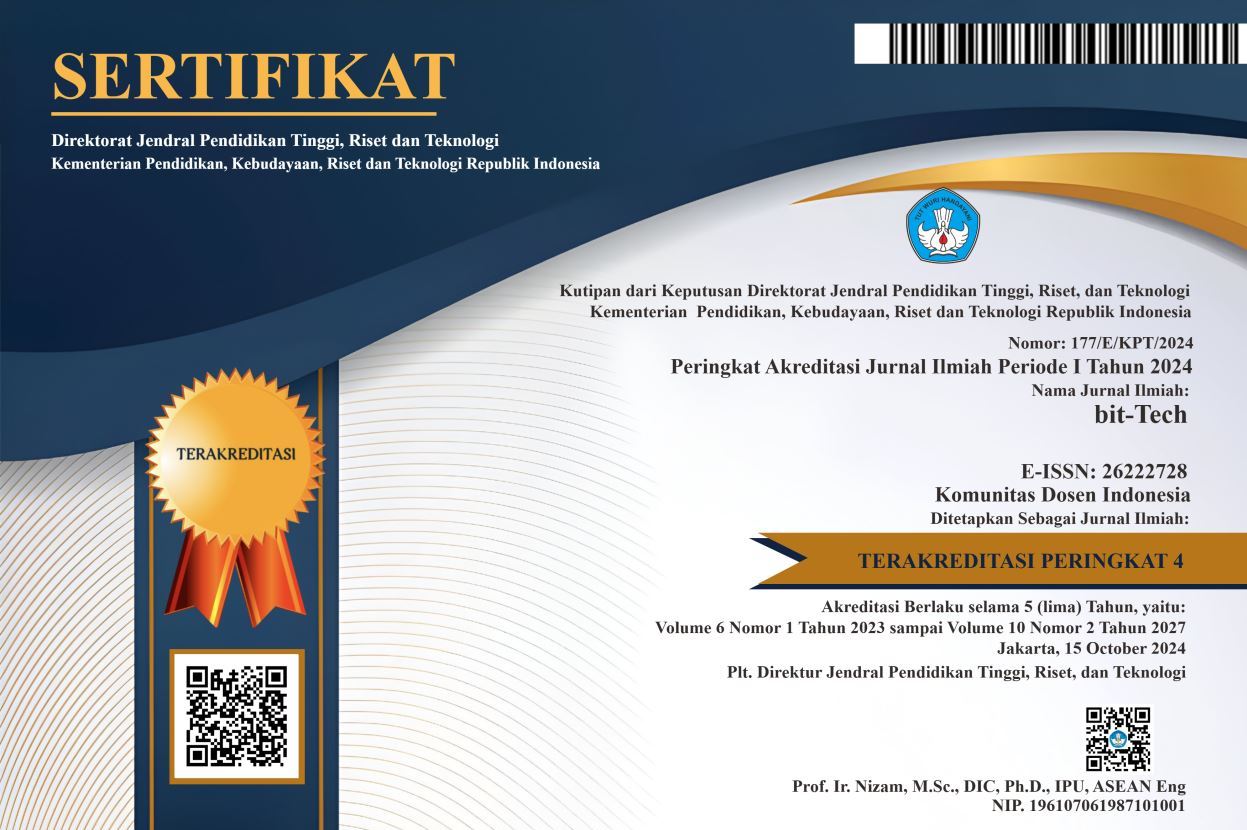E-Commerce Coffepedia with Technology Acceptance Model (TAM) Testing
DOI:
https://doi.org/10.32877/bt.v5i2.593
Keywords:
Attention to Use, Behavioral Intention to Use, Coffee Powder, E-Commerce, Perceived Ease of Use, Perceived Usefulness, Technology Acceptance Model, Theory of Reasoned Action
Abstract
Coffee is one of the plantation commodities that has an important role in economic activities in Indonesia. Coffee is also one of Indonesia's export commodities which is quite important as a foreign exchange earner in addition to oil and gas. As a producer, Indonesia occupies the fourth position while as a consumer Indonesia is in seventh place, and coffee connoisseurs in Indonesia are growing rapidly at 8% for the development of coffee connoisseurs in Indonesia while the development of coffee connoisseurs in the world is only 6%. With the increase in coffee drinkers in Indonesia, the level of sales of coffee powder will also increase. In this study, the system was designed to facilitate the sale of coffee powder using prototyping methodology and the Technology Acceptance Model (TAM) for testing method. The purchasing system can make it easier and provide convenience for buyers and sellers in Indonesia. Based on the TAM test that has been carried out on 79 respondents, it shows the results that Attention to Use (ATU) affects Behavioral Intention to Use (BITU) by 4.427, Behavioral Intention to Use (BITU) affects Actual System Usage (ASU) 16.511, Perceived Ease of Use (PEOU) affects Attention to Use (ATU) by 3.130, Perceived Usefulness (PU) affects Attention to Use (ATU) by 6.712, and PU affects BITU by 4.692.
Downloads
References
A. Sudarsono, Pengantar Aplikasi Komputer. Nagari Koto Baru: Insan Cendekia Mandiri, 2021.
Badan Pusat Statistik, “Statistik Kopi Indonesia,” 2020.
Sudarto, Peluang Usaha IKM Kopi. Kementrian Perindustrian Republik Indonesia, 2017.
Departemen Komunikasi, “Pandemi Pendorong Digitalisasi,” 2022. [Online]. Available: https://www.bi.go.id/id/publikasi/ruang-media/cerita-bi/Pages/Pandemi-Pendorong-Digitalisasi.aspx. [Accessed: 15-Jun-2022].
I. H. Santi and F. Sudiasmo, PERCEIVED USEFULNESS DAN PERCEIVED EASE OF USE TERHADAP BEHAVIORAL INTENTION TO USE DAN ACTUAL USAGE PADA APLIKASI IDENTIFIKASI JENIS KULIT WAJAH. Surabaya: CV. Jakad Media Publishing, 2020.
N. H. Harani and A. F. Sunandhar, APLIKASI PROSPEK SALES MENGGUNAKAN CODEIGNITER. Bandung: Kreatif Industri Nusantara, 2020.
M. Faris and A. Wisaksono, “Pengembangan Aplikasi E-Commerce Untuk Pemasaran Biji dan Bubuk Kopi Berbasis Web(Studi Kasus D’Votee Coffee),” Janitra Inform. dan Sist. Inf., vol. 1, 2021.
S. Kemp, “DIGITAL 2021?: GLOBAL OVERVIEW REPORT,” we are social and Hootsuite, 2021. [Online]. Available: https://datareportal.com/reports/digital-2021-global-overview-report. [Accessed: 10-May-2021].
D. T. La Jahalia and Lu’lu’ Nafiati, “Niat Menggunakan E-Commerce Dengan Technology Acceptance Model (TAM) Pada UMKM,” Bisnis & Kewirausahaan, vol. 17, 2021.
K. D. Putri and D. Kurniadi, “E-Coffee, Aplikasi Pemasaran Kopi Lokal Sumatera Barat Berbasis Web,” Vocat. Tek. Elektron. dan Inform., vol. 8, 2020.
R. D. Susilo, B. Daniawan, A. Wijaya, and Suwitno, “The Acceptance Study of e-commerce Customers Based on,” bit-Tech, vol. 3, no. 3, 2021.
M. D. L. Siahaan and Prihandoko, “Mengukur Tingkat Kepercayaan Sistem Zakat Online Menggunakan Technology Acceptance Model (TAM) Di Kalangan Masyarakat Kampus,” J. Tek. dan Inform., vol. 6, no. 1, pp. 18–24, 2019.
F. S. Rahayu, D. Budiyanto, and D. Palyama, “Analisis Penerimaan e-Learning Menggunakan Technology Acceptance Model (TAM) (Studi Kasus: Universitas Atma Jaya Yogyakarta),” JUTEI, vol. 1, no. 2, 2017.
I. Ajzen and M. Fishbein, Understanding Attitudes and Predicting Social Behavior. Upper Saddle River, NJ?: Prentice-Hall, 2002.
P. A. G. Permana, “Penerapan Metode TAM (Technology Acceptance Model) dalam Implementasi Sistem Informasi Bazzar Banjar,” Speed, vol. 10, pp. 1–7, 2018.
E. Susanto and N. Jimad, “PENGARUH PERSEPSI PENGGUNAAN TECHNOLOGY ACCEPTANCE MODEL (TAM) TERHADAP PENGGUNAAN E-FILLING,” Ilm. Akunt. Perad., vol. 5, pp. 104–124, 2019.
T. Irawati, E. Rimawati, and N. A. Pramesti, “Penggunaan Metode Technology Acceptance Model (TAM) Dalam Analisis Sistem Informasi Alista (Application Of Logistic And Supply Telkom Akses),” is Best Account. Inf. Syst. Inf. Technol. Bus. Enterp. this is link OJS us, vol. 4, no. 2, pp. 106–120, 2020.
E. Yani, A. F. Lestari, H. Amalia, and A. Puspita, “Pengaruh Internet Banking Terhadap Minat Nasabah Dalam Bertransaksi Dengan Technology Acceptance Model,” Informatika, vol. 5, pp. 34–42, 2018.
S. B. Hermanto and Patmawati, “Determinan Penggunaan Aktual Perangkat Lunak Akuntansi Pendekatan Technology Acceptance Model,” Akunt. dan Keuang., vol. 19, pp. 67–81, 2017.
N. Oktavia, SISTEMATIKA PENULISAN KARYA ILMIAH. Yogyakarta: Deepublish, 2015.
M. R. Julianto and B. Daniawan, “E-COMMERCE INFORMATION SYSTEM USING TECHNOLOGY ACCEPTANCE MODEL APPROACH,” J. TAM ( Technol. Accept. Model ), vol. 13, pp. 1–8, 2022.
N. W. W. Sari, I. Purnamasari, and Fahrullah, “Kombinasi Metode Partial Least Square(PLS) dan Technology Acceptance Model(TAM)?: Evaluasi Pembelajaran (Praktikum Online),” METIK, vol. 4, 2020.
L. Reza, Sunardi, and Herman, “Penilaian Sistem Informasi Akademik Dengan Metode Technology Acceptance Model,” Fountain Informatics J., vol. 7, 2021.
Teni and A. Yudianto, “PENGARUH MOTIVASI BELAJAR TERHADAP HASIL BELAJAR SISWA KELAS VII SMP NEGERI 2 KEDOKAN BUNDER KABUPATEN INDRAMAYU,” Pendidik. Indones., vol. 2, 2021.
I. D. Sujatmiko and G. L. P. E. Prismana, “Implementasi Technology Acceptance Model 3 (TAM 3) terhadap Kepuasan Pengguna Aplikasi Investasi dan Trading Saham (Studi Kasus: Aplikasi Mobile IPOT),” J. Emerg. Inf. Syst. Bus. Intell., vol. 3, 2022.
Downloads
Published
How to Cite
Issue
Section
License
Copyright (c) 2022 bit-Tech

This work is licensed under a Creative Commons Attribution-ShareAlike 4.0 International License.
I hereby assign and transfer to bit-Tech all exclusive copyright ownership rights to the above work. This includes, but is not limited to, the right to publish, republish, downgrade, distribute, transmit, sell, or use the work and other related materials worldwide, in whole, or in part, in all languages, in electronic, printed, or any other form of media, now known or hereafter developed and reserves the right to permit or license a third party to do any of the above. I understand that this exclusive right will belong to bit-Tech from the date the article is accepted for publication. I also understand that bit-Tech, as the copyright owner, has sole authority to license and permit reproduction of the article. I understand that, except for copyright, any other proprietary rights associated with the work (e.g. patents or other rights to any process or procedure) must be retained by the author. In addition, I understand that bit-Tech permits authors to use their papers in any way permitted by the applied Creative Commons license.


 DOI :
DOI :
 Abstract views: 376
/
Abstract views: 376
/  PDF downloads: 353
PDF downloads: 353











